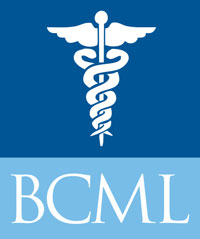Injuries happen, whether it’s a fall, a car accident, a sports strain, or a workplace incident. And while rest is part of healing, it’s not the full answer. Physiotherapy plays a key role in recovery by helping people regain strength, mobility, and independence without relying solely on medication or passive treatment.
At Lockwood Clinic in downtown Toronto, physiotherapy is part of a patient-focused model that combines convenience with expert care. Whether you’ve just walked in after an acute injury or are following up post-surgery, our team works with you to build a plan that actually gets you moving again, safely and steadily.
What Is Physiotherapy?
Physiotherapy is a hands-on, science-based healthcare discipline that focuses on improving physical function. Physiotherapists use a range of tools — from guided exercises to manual therapy, electrotherapy, and education — to help people recover after an injury or surgery, manage chronic pain, and avoid further damage.
But physiotherapy isn’t just about fixing what’s broken. It’s about restoring function, helping people move, live, and work without pain holding them back.
Related Article: 5 Benefits of Physiotherapy for Chronic Pain Management
Why Injuries Need More Than Rest
Let’s say you sprain your ankle. The natural instinct might be to stay off it entirely until the pain fades. While that might feel right, it can actually cause more harm long-term. Prolonged rest leads to stiffness, muscle loss, and delayed healing. Worse, you may start compensating with other parts of your body, creating new problems down the line.
This is where physiotherapy steps in. A physiotherapist will guide you through active recovery, striking the right balance between movement and protection. They help you avoid overuse but also prevent underuse, which is just as risky.
How Physiotherapy Supports Healing
At Lockwood Clinic, our physiotherapists tailor each recovery plan to the individual. There’s no one-size-fits-all. Your treatment will depend on your injury, health history, mobility level, and goals.
Here’s how physiotherapy makes a difference:
1. Speeds Up Recovery Time
Therapists use evidence-based techniques to activate the body’s natural healing processes. They improve circulation, reduce swelling, and get you moving sooner, which all contribute to a faster, more complete recovery.
2. Reduces Pain Without Overreliance on Medications
Through manual therapy, targeted exercises, and modalities like TENS or ultrasound, physiotherapy addresses pain at its source rather than just masking it with pills.
3. Prevents Long-Term Complications
Untreated injuries can lead to scar tissue, chronic pain, loss of mobility, or re-injury. Physiotherapists identify issues early and help correct poor movement patterns before they turn into lasting problems.
4. Improves Strength, Balance, and Flexibility
Many injuries cause muscle imbalances or reduced stability. Physiotherapists work to restore strength in key muscle groups, improve flexibility, and retrain balance to help prevent future injuries.
5. Supports Mental and Emotional Health
Being injured can affect your mental health, especially if it limits your independence or stops you from working. Physiotherapy gives you back a sense of progress and control, which is key for motivation and recovery.
Common Injuries Treated with Physiotherapy
You don’t have to be an athlete to benefit from physiotherapy. Common cases we see at Lockwood Clinic include:
- Sprains and strains (ankle, wrist, shoulder)
- Knee injuries (including post-ACL surgery)
- Back and neck pain
- Fractures and dislocations
- Tendonitis and bursitis
- Workplace and repetitive strain injuries
- Motor vehicle accident injuries (e.g. whiplash)
Physiotherapy is also helpful post-surgery to rebuild mobility and strength, especially after joint replacements or spinal procedures.
What to Expect at Your Appointment
Our physiotherapists at Lockwood Clinic take the time to get to know your injury and your body. Here’s what happens when you come in:
1. Assessment and Diagnosis
The first visit includes a thorough physical assessment. The therapist will evaluate your range of motion, strength, posture, and pain levels. They’ll also ask about your lifestyle, activity level, and what goals you want to reach.
2. Treatment Plan
Based on the assessment, your physiotherapist creates a custom recovery plan. This may include:
- Guided therapeutic exercises
- Manual therapy (joint mobilization, soft tissue release)
- Modalities (heat, cold, TENS, ultrasound)
- Education about posture, activity modifications, or workplace ergonomics
3. Ongoing Progress Monitoring
As your condition improves, your plan will adapt. You’ll gradually build strength and reduce your dependence on therapy. The goal is to return to full function, not just feel better temporarily.
4. Self-Management Strategies
You’ll also learn home exercises and strategies to manage your symptoms independently. This helps maintain your progress and reduces the risk of re-injury.
Related Article: Lockwood Clinic Explores the Advantages of Physiotherapy as Rehabilitation and Plan Management Techniques
Why Choose Lockwood Clinic for Physiotherapy?
Physiotherapy is only as good as the team behind it. And at Lockwood Clinic, you’re in capable hands. Our therapists are trained, experienced, and work alongside a full medical team under one roof.
Here’s what sets us apart:
- Walk-in access: No need to wait for weeks to get started. Most patients can be seen quickly, even without a referral.
- Onsite diagnostic services: Need an X-ray or ultrasound to confirm the injury? We’ve got it in-house. No extra trips required.
- Integrated care: Our physiotherapists work closely with family doctors, pharmacists, and specialists to make sure your treatment is fully aligned with your overall health plan.
- Downtown Toronto location: Convenient for residents and workers alike, with easy access to public transit.
- Compassionate, personalized approach: We treat people, not just injuries. Your plan is built around your body, your pace, and your recovery goals.
From Injury to Independence
Let’s say you slipped on ice and fractured your wrist. After the cast comes off, your wrist is stiff, weak, and painful. You can’t grip properly, and even simple tasks like brushing your teeth or typing are difficult.
Instead of waiting it out and hoping it gets better, you visit Lockwood Clinic’s physiotherapy department. Your therapist starts with range-of-motion exercises, gradually introducing resistance work and grip-strength tools. After a few weeks, you’ve regained most of your function. And more importantly, you’ve avoided long-term stiffness and loss of motion.
That’s the power of early, focused physiotherapy.
Related Article: Services You Can Expect at a Walk-In Clinic in Toronto
You Don’t Need to Wait to Heal
Some people think physiotherapy is only for severe injuries or athletes, but it’s for anyone who wants to heal properly, stay active, and avoid long-term pain. And with Lockwood Clinic’s accessible, patient-first model, getting the help you need is easier than ever.
Whether you’ve just had a minor sprain or a major surgery, our team is here to get you back on your feet, literally.
Moving Forward, One Step at a Time
Healing takes time, but it doesn’t have to happen alone, and it doesn’t have to happen slowly. With physiotherapy at Lockwood Clinic, recovery becomes a guided process. You’ll move with purpose, build strength with support, and gain the confidence to return to your normal routine pain-free.
Book your physiotherapy consultation today. No referral required. Walk in, get assessed, and start your recovery with a team that puts your health first.



